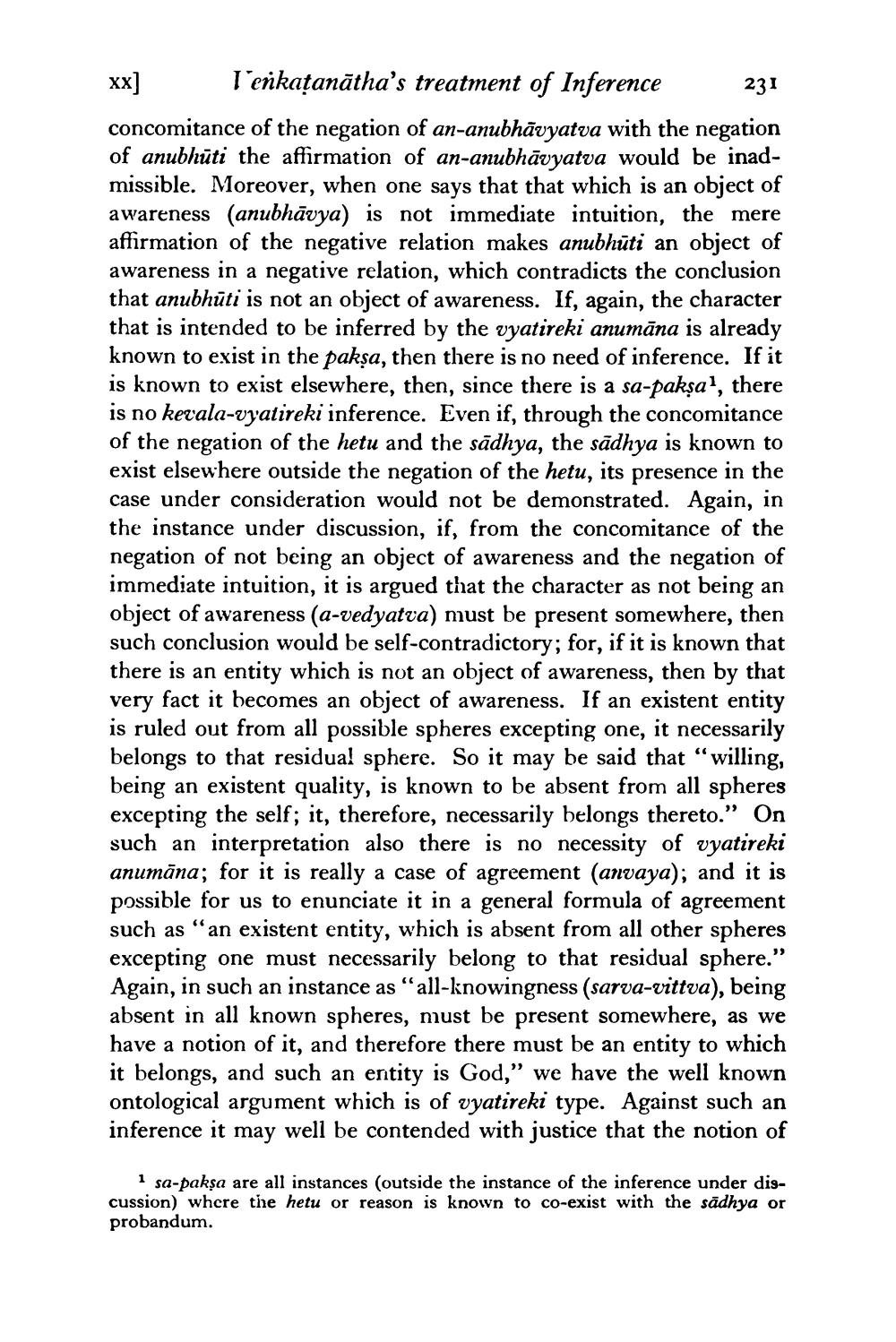________________
xx] Tenkațanātha's treatment of Inference 231 concomitance of the negation of an-anubhāvyatva with the negation of anubhūti the affirmation of an-anubhāvyatva would be inadmissible. Moreover, when one says that that which is an object of awareness (anubhāvya) is not immediate intuition, the mere affirmation of the negative relation makes anubhūti an object of awareness in a negative relation, which contradicts the conclusion that anubhūti is not an object of awareness. If, again, the character that is intended to be inferred by the vyatireki anumāna is already known to exist in the pakşa, then there is no need of inference. If it is known to exist elsewhere, then, since there is a sa-pakşa", there is no kevala-vyatireki inference. Even if, through the concomitance of the negation of the hetu and the sādhya, the sādhya is known to exist elsewhere outside the negation of the hetu, its presence in the case under consideration would not be demonstrated. Again, in the instance under discussion, if, from the concomitance of the negation of not being an object of awareness and the negation of immediate intuition, it is argued that the character as not being an object of awareness (a-vedyatva) must be present somewhere, then such conclusion would be self-contradictory; for, if it is known that there is an entity which is not an object of awareness, then by that very fact it becomes an object of awareness. If an existent entity is ruled out from all possible spheres excepting one, it necessarily belongs to that residual sphere. So it may be said that “willing, being an existent quality, is known to be absent from all spheres excepting the self; it, therefore, necessarily belongs thereto.” On such an interpretation also there is no necessity of vyatireki anumāna; for it is really a case of agreement (anvaya); and it is possible for us to enunciate it in a general formula of agreement such as "an existent entity, which is absent from all other spheres excepting one must necessarily belong to that residual sphere." Again, in such an instance as "all-knowingness (sarva-vittva), being absent in all known spheres, must be present somewhere, as we have a notion of it, and therefore there must be an entity to which it belongs, and such an entity is God," we have the well known ontological argument which is of vyatireki type. Against such an inference it may well be contended with justice that the notion of
1 sa-paksa are all instances (outside the instance of the inference under discussion) where the hetu or reason is known to co-exist with the sādhya or probandum.




